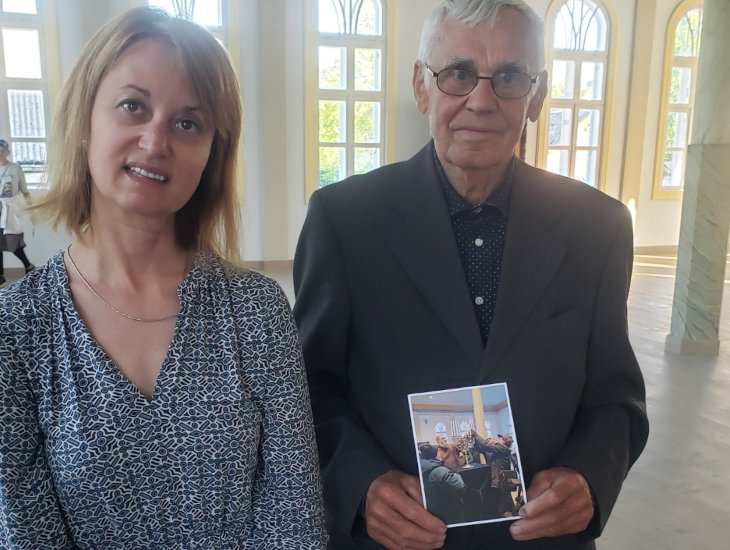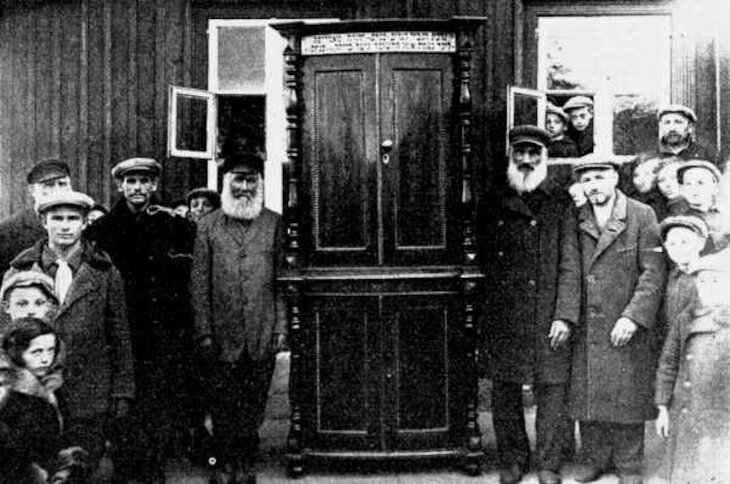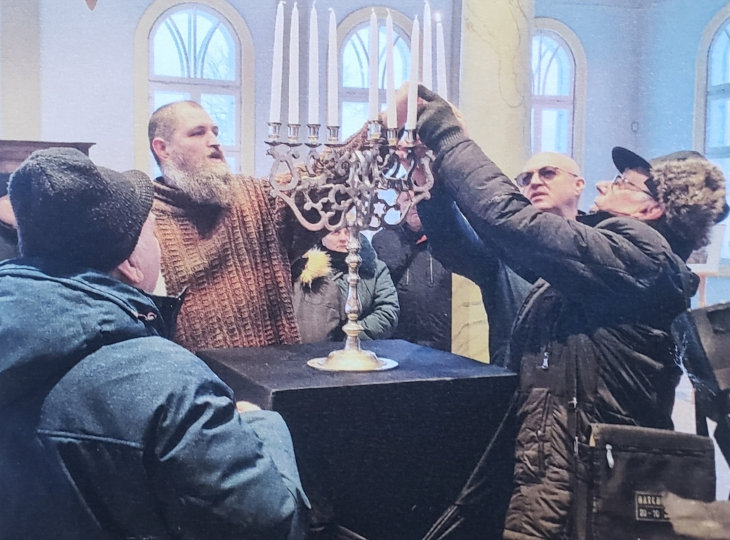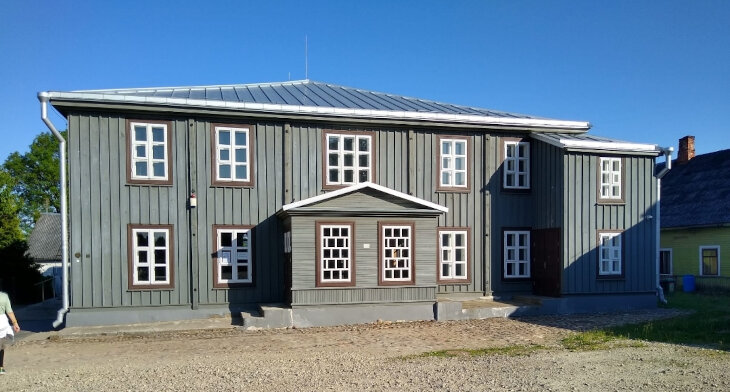Journeying through Estonia, Latvia and Lithuania where Jewish communities lived and flourished before Holocaust, my husband and I chanced upon the most unforgettable meeting in a small Lithuanian village called Ziezmariai, about 60 kilometers from Vilnius.

The guide of our small group heard that there was a synagogue that miraculously survived both World War II and the Communist years. The building was recently restored and was currently maintained by a local resident. As we walked into the building, we were welcomed by an older Lithuanian gentleman named Liudvikas Markuntavicius. His family hid 13 Jews, 11 adults and two children in a nearby town called Kleriskes. For three years, between 1941 and 1944 his uncle Vaclovas Paskauskas used the cellar under his house to save these 13 Jews who were members of three families: Gilman, Kalaminskai and Ipson. Liudvikas was born in 1938 and remembers as a small child, together with his mother, trading whatever valuables they could find in their home for food. Feeding 13 people without raising suspicion was an unimaginable task. We were struck by how much reverence Liudvikas had for Jewish heritage. When he greeted us, this tall, white-haired, blue-eye, dignified man was holding a folder with a big Star of David on its cover. Inside the folder were copies of pictures and documents of his lifetime mission to preserve the memory of the world that once existed here.
The Jews who knocked on Liudvikas’ family door in the middle of the night were complete strangers, asking for help. When asked what motivated his family to risk their lives for other people, people they didn’t even know, Liudvikas simply shrugged and said, “It was the only right thing to do.”
He remembers how the village was liberated, his mother opened the cellar and told the people inside that it was safe to walk out. The appearance of these 13 people shocked the neighbors. They had no idea that for three long years these Jews were hiding under the house.
About 20 years ago Liudvikas saw that the synagogue was starting to fall apart. He mounted the windows to protect the building from outside elements. Liudvikas also cleaned the inside walls and did whatever he could to preserve this historic site.
Eventually, the European Union government funded the restoration of the historic synagogue. The project was completed in 2021, after five years of working on the synagogue.
Liudvikas also spent time caring for the hiding hole in the ground, cutting grass, and making it visible for visitors. Since the hiding place is located about 15 kilometers from the synagogue, it became very challenging for Liudvikas to get there. He was sad to share that the last time he went was three years ago.

After the war, the 13 survivors moved to Kaunus and later immigrated to the United States. Liudvikas shared that descendants sometimes came to this corner of the world to witness their ancestors’ survival story. Remarkably, one of the grandchildren made a replica of the ‘hiding hole’ in his home in America. Liudvikas has no knowledge of where exactly they settled in the US but feels very connected to the families of the survivors.
Liudvikas also takes care of the monument that marks the local mass grave of the victims of the Holocaust.
During Hanukkah of 2022, Liudvikas witnessed the menorah that was originally housed by the local community be returned to its rightful home in the Ziezmariai synagogue. During the Holocaust, the menorah was hidden by a Lithuanian gentleman at the beginning of the war. He eventually entrusted it to a local priest.
In a small but festive ceremony with two Jewish people in attendance, the current priest, Father Akelaites who inherited the menorah from his predecessor, lit the Hanukkah candles 80 years after it left its home.
In his book The Dignity of Difference , Rabbi Jonathan Sacks writes:
“Most societies at most times have been suspicious of, and aggressive toward, strangers. That is understandable, even natural. Strangers are non-kin. They come from beyond the tribe. They stand outside the network of reciprocity that creates and sustains communities. That is what makes the Mosaic books unusual in the history of moral thought. As the rabbis noted, the Hebrew Bible in one verse commands, ‘You shall love your neighbor as yourself, but in no fewer than 36 places commands us to ‘love the stranger’… We do not have to share a creed or code to be partners in the covenant of humankind.”
Liudvikas Markuntavicius, a simple Lithuanian man, and his family, embodied this message by choosing not to remain indifferent to the pain and suffering of their fellow man.
Our group left feeling uplifted and motivated to emulate this unconditional commitment to those who needed our help.

Elie Wiesel wrote, “Indifference, to me, is the epitome of evil. The opposite of love is not hate, it’s indifference. The opposite of art is not ugliness, it’s indifference. The opposite of faith is not heresy, it’s indifference. And the opposite of life is not death, it’s indifference.”
Liudvikas and his family, essentially unbeknownst to anyone, took heroic action and saved the lives of 13 Jews, simply because it was the right thing to do.
This Humble Lithuanian Hero Saved 13 Jews in the Holocaust – Aish.com

